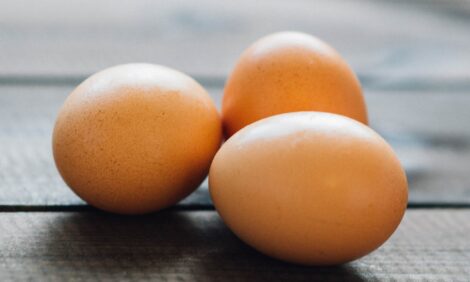



Weekly Overview: Avian Flu and Its Impacts on the US Poultry Sector
GLOBAL - New outbreaks of highly pathogenic avian flu in the United States continue to be reported on a daily basis, with turkey flocks in Minnesota bearing the brunt of the onslaught. A 3.8-million-bird layer flock in Iowa has also been affected in the last week, as have poultry farms in Canada (Ontario), Africa and Asia. Repercussions are being felt by the poultry and feed industries in those countries and across the world.In the last week, 28 new outbreaks of H5N2 highly pathogenic avian influenza have been reported officially in the United States in the last week. The great majority of these outbreaks – 26 – were in commercial turkeys in Minnesota; the other two were in a commercial flock of 3.8 million layers in Iowa and one mixed backyard flock. In total, more than five million birds were affected in the last week alone, including one large layer flock in Iowa. For an overview of the situation, visit our Bird Flu page.
Since the first outbreak in mid-December 2014, there have been 71 high-path avian flu outbreaks in the US, affecting 13 states – 57 in commercial turkeys, three in commercial chickens and 11 in backyard flocks. The number of poultry affected by these outbreaks has reached a total of more than 7.3 million, which includes over 4.1 million commercial chickens, 3.2 million commercial turkeys and more than 7,000 backyard poultry.
While the losses are not yet as catastrophic as the estimated 17 million birds in Delmarva in 1983, the disease situation is having significant impacts on the US poultry sector.
Some countries have imposed a ban on imports of all poultry and poultry products from the US but so far, turkey prices have remained strong, according to industry analysts, Steve Meyer and Len Steiner.
They highlight that Mexico accounts for more than 60 per cent of US turkey meat exports and although it has stopped imports from selected states, it appears not to be keen to stop all the trade in turkey meat and eggs from the US.
The real danger is to the US broiler sector, according to these analysts; no broiler farm has yet reported the disease.
So seriously is the situation being taken that the USDA chief vet is reported to be considering the use of a vaccine in poultry, if one were to be developed shortly. That would be a reversal of policy for the country and could indicate a growing realisation that the disease will not be eradicated there any time soon.
Discussing the impact of recent avian influenza outbreaks, Hormel Foods says it is experiencing "significant challenges" in its turkey supply chain, Jennie-O Turkey Store.
In an analysis of the effects of the avian flu outbreaks in the US on global feed ingredient prices, the Home-Grown Cereals Authority in the UK suggests that recent declines in US maize and soybean futures prices have been linked to outbreaks.
It says that these futures prices have been impacted due to their derived demand in the production of animal feed as countries ban outright or restrict imports of US poultry products.
Other countries reporting outbreaks of highly pathogenic avian flu in poultry in the last week were Canada, Niger, India, Burkina Faso, Taiwan and Bhutan. In addition, Taiwan and South Africa retrospectively announced the low-pathogenic disease in chickens and ostriches, respectively.
In other news, the International Egg Commission held its annual meeting in the Portuguese capital, Lisbon, recently, reported by ThePoultrySite editor, Nuria Martinez Herráez.
In Germany, the federal agriculture ministry has launched a new initiative to make animal welfare a high priority.
And last but by no means least, Poultry CRC in Australia has been involved in a series of videos to help and encourage teachers to set up poultry flocks in schools so young people can learn about agriculture, animal care and so many other important lessons for life.











